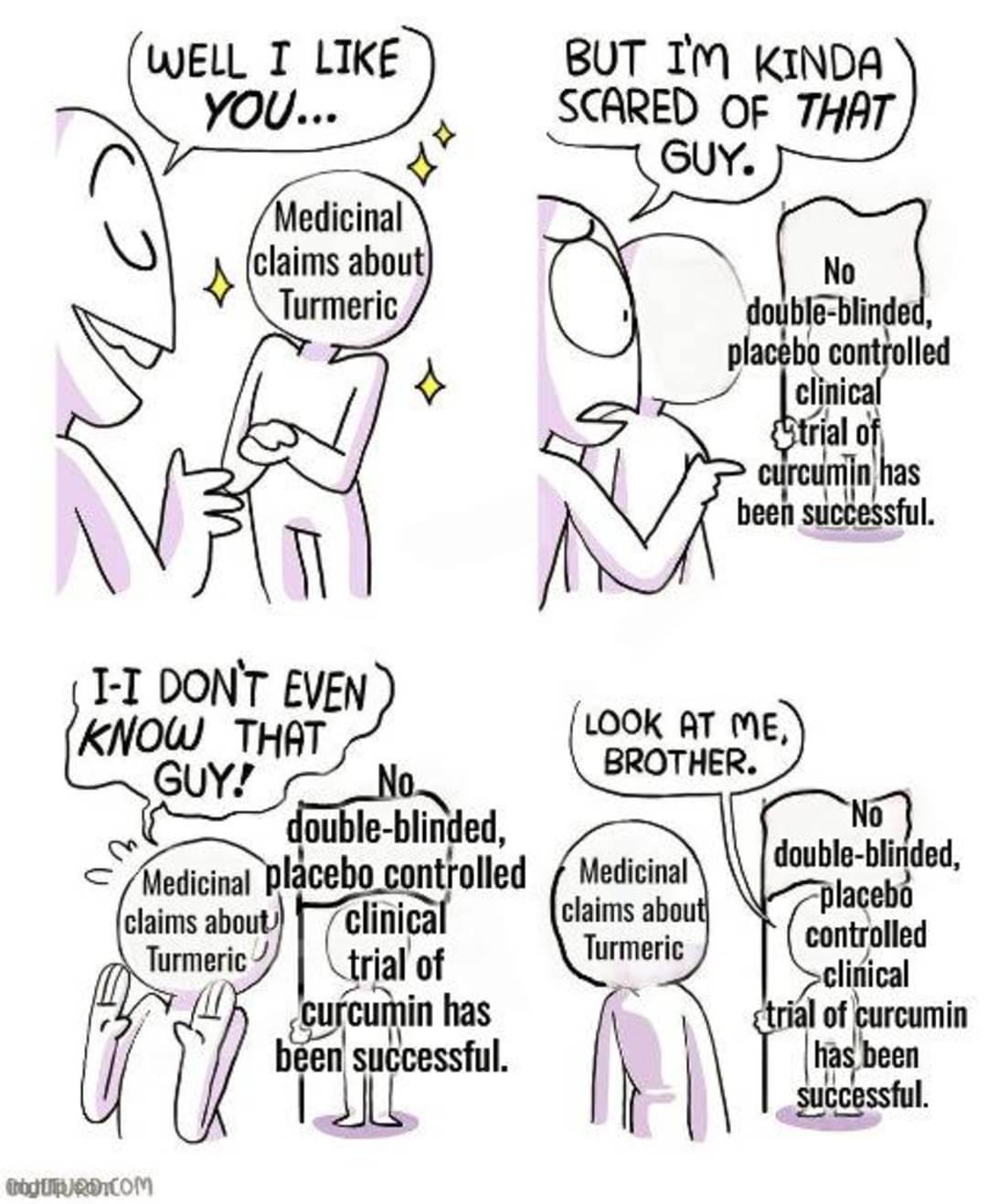this post was submitted on 31 May 2024
414 points (96.6% liked)
Science Memes
11557 readers
1797 users here now
Welcome to c/science_memes @ Mander.xyz!
A place for majestic STEMLORD peacocking, as well as memes about the realities of working in a lab.

Rules
- Don't throw mud. Behave like an intellectual and remember the human.
- Keep it rooted (on topic).
- No spam.
- Infographics welcome, get schooled.
This is a science community. We use the Dawkins definition of meme.
Research Committee
Other Mander Communities
Science and Research
Biology and Life Sciences
- !abiogenesis@mander.xyz
- !animal-behavior@mander.xyz
- !anthropology@mander.xyz
- !arachnology@mander.xyz
- !balconygardening@slrpnk.net
- !biodiversity@mander.xyz
- !biology@mander.xyz
- !biophysics@mander.xyz
- !botany@mander.xyz
- !ecology@mander.xyz
- !entomology@mander.xyz
- !fermentation@mander.xyz
- !herpetology@mander.xyz
- !houseplants@mander.xyz
- !medicine@mander.xyz
- !microscopy@mander.xyz
- !mycology@mander.xyz
- !nudibranchs@mander.xyz
- !nutrition@mander.xyz
- !palaeoecology@mander.xyz
- !palaeontology@mander.xyz
- !photosynthesis@mander.xyz
- !plantid@mander.xyz
- !plants@mander.xyz
- !reptiles and amphibians@mander.xyz
Physical Sciences
- !astronomy@mander.xyz
- !chemistry@mander.xyz
- !earthscience@mander.xyz
- !geography@mander.xyz
- !geospatial@mander.xyz
- !nuclear@mander.xyz
- !physics@mander.xyz
- !quantum-computing@mander.xyz
- !spectroscopy@mander.xyz
Humanities and Social Sciences
Practical and Applied Sciences
- !exercise-and sports-science@mander.xyz
- !gardening@mander.xyz
- !self sufficiency@mander.xyz
- !soilscience@slrpnk.net
- !terrariums@mander.xyz
- !timelapse@mander.xyz
Memes
Miscellaneous
founded 2 years ago
MODERATORS
you are viewing a single comment's thread
view the rest of the comments
view the rest of the comments

What is it?
https://en.wikipedia.org/wiki/Turmeric
Almost all plants have some effect on the body; some people think that this one is particularly powerful.
Also, there's the placebo effect; if you think something is good for you it can actually help, even if it's just a sugar pill.
The placebo effect doesn’t help. It’s just noise in the data collection process. It’s particularly problematic with human trials that rely on subjective evidence. Humans have a bias that actions have effects, even when they don’t (gamblers blowing on dice, wishing on a star etc).
Any intervention will have people think that the outcome has changed because of the intervention. This doesn’t mean the placebo effect helped, it just altered the recorded outcome. If it was a device was used to make the measurement, rather than human opinion, we just call it noise/error.
It’s a common misconception that the placebo effect does something. It does nothing other than artificially increase subjective measurements. Placebo effect is stronger in very subjective medical conditions such as pain, shiny packaging and brand names are reported to provide greater pain relief. Such medicines are so tightly regulated the formulation and supply leaves very little opportunity for medicines to actually have an effect. You don’t see the same effect when it comes to reducing the size of cancer tumours or altering directly measurable quantities.
Doctors aren’t allowed to prescribe placebos in the UK. Because it’s dangerous and a source of corruption. Such as King Charles selling homeopathic services to the NHS. Doctors do recommend such services, they do this primarily to dismiss patients and their issues.
Is there somewhere I can read more about this in non technical terms? I never knew that about the placebo effect.
The intro to the Wikipedia article on placebo is quite good. Lots of easily accessible sources often misrepresent the placebo effect. The Wikipedia article does suggest placebo effect improves pain response, but it does say perceived.
If someone says something uses the placebo effect it means it doesn’t work. They may not know that. But a placebo response is our measure for medical treatments that don’t work.
When people say the placebo effect works it’s like a microwave that doesn’t heat food. People hear the ding and tell you the food does feel warmer. The perception is that the broken microwave heats food, but the food isn’t any warmer. We avoid this issue in science by making measurements, but for fields like medicine we often rely on people saying how they feel. This is how the placebo effect corrupts medical studies. People are very unreliable. They also often want to be polite and say they had a positive effect from the treatment. This is doubly so for people that volunteer or buy these types of herbal treatments. They think only idiots would buy or take these things that don’t work, I’m not an idiot so the treatment must be working.